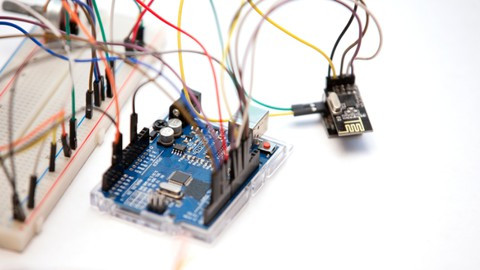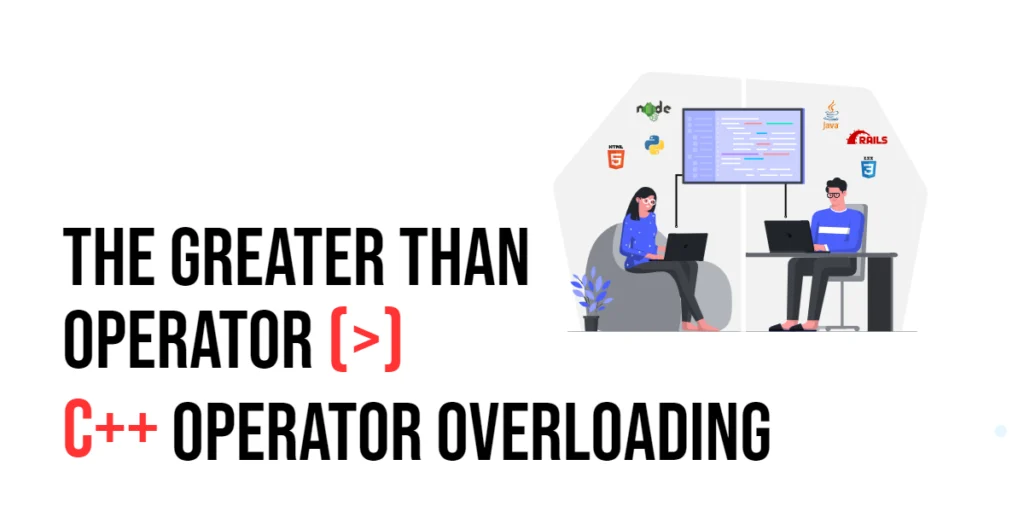C++ is a powerful programming language that provides a wide range of operators to manipulate data and control the flow of a program. Logical operators are essential components of C++ that allow developers to make decisions based on the truth or falsity of certain conditions. In this article, we will explore logical operators in C++, whether you’re a seasoned developer or just starting your coding journey, understanding these operators is fundamental to writing robust and efficient C++ programs.

with hands-on learning.
get the skills and confidence to land your next move.
Introduction to Logical Operators
Logical operators in C++ are used to perform logical operations on boolean values. Boolean values represent either true or false, and logical operators help in making decisions based on the truth or falsity of these values. C++ provides three main logical operators: AND (&&), OR (||), and NOT (!).
AND Operator (&&)
The AND operator is used to combine two boolean expressions. It returns true only if both expressions are true; otherwise, it returns false.
#include <iostream>
int main() {
// AND operator example
bool condition1 = true;
bool condition2 = false;
if (condition1 && condition2) {
std::cout << "Both conditions are true." << std::endl;
} else {
std::cout << "At least one condition is false." << std::endl;
}
return 0;
}In the above example, the output will be “At least one condition is false” because condition2 is false.
OR Operator (||)
The OR operator is used to combine two boolean expressions. It returns true if at least one of the expressions is true.
#include <iostream>
int main() {
// OR operator example
bool condition1 = true;
bool condition2 = false;
if (condition1 || condition2) {
std::cout << "At least one condition is true." << std::endl;
} else {
std::cout << "Both conditions are false." << std::endl;
}
return 0;
}In this example, the output will be “At least one condition is true” because condition1 is true.
NOT Operator (!)
The NOT operator is a unary operator that is used to invert the value of a boolean expression. If the expression is true, the NOT operator makes it false, and vice versa.
#include <iostream>
int main() {
// NOT operator example
bool condition = true;
if (!condition) {
std::cout << "The condition is false." << std::endl;
} else {
std::cout << "The condition is true." << std::endl;
}
return 0;
}In this case, the output will be “The condition is true” because the NOT operator negates the value of condition.
Combining Logical Operators
One of the strengths of logical operators is the ability to combine them to create complex conditions. Let’s explore a scenario where we use both the logical AND and OR operators:
#include <iostream>
int main() {
int age = 25;
bool hasLicense = true;
// Using both logical AND and OR operators
if (age >= 18 && hasLicense || age >= 21) {
std::cout << "You are eligible to drive." << std::endl;
} else {
std::cout << "You are not eligible to drive." << std::endl;
}
return 0;
}In this example, the condition age >= 18 && hasLicense || age >= 21 will be true for someone who is either 18 years or older with a license or 21 years or older. Adjust the values accordingly to see how the program behaves.
Short-Circuit Evaluation
C++ employs short-circuit evaluation when dealing with logical operators. This means that in an AND operation, if the first condition is false, the second condition is not evaluated because the overall result will be false regardless of the second condition. Similarly, in an OR operation, if the first condition is true, the second condition is not evaluated.
#include <iostream>
int main() {
// Short-circuit evaluation example
int x = 5;
int y = 0;
if (y != 0 && x / y > 2) {
std::cout << "This won't be printed due to short-circuit evaluation." << std::endl;
} else {
std::cout << "Short-circuit evaluation prevents division by zero error." << std::endl;
}
return 0;
}In this example, attempting to evaluate x / y would result in a division by zero error. However, short-circuit evaluation prevents the second condition from being evaluated, avoiding the error.
Understanding Operator Precedence
Logical operators have specific precedence levels, and understanding them is crucial for writing accurate conditions. While && has higher precedence than ||, using parentheses is advisable for clarity.
Logical AND (&&) Precedence
The logical AND operator (&&) has higher precedence than the logical OR operator (||). This means that in an expression containing both && and ||, the && operations will be evaluated first. Consider the following example:
if (x > 5 && y < 10 || z == 0) {
// Code here
}In this case, the && operation between x > 5 and y < 10 will be evaluated before the || operation with z == 0.
Using Parentheses for Clarity
While understanding operator precedence is essential, relying solely on it for complex expressions can lead to confusion. To enhance code readability and explicitly specify the order of evaluation, it’s advisable to use parentheses. For instance:
if ((x > 5) && (y < 10 || z == 0)) {
// Code here
}This not only makes the code more explicit but also helps prevent errors that may arise from misunderstandings of operator precedence.
Logical NOT (!) Precedence
The logical NOT operator (!) is a unary operator, and it has the highest precedence among logical operators. It is often used to negate the result of another logical expression. For example:
if (!(x > 5 && y < 10)) {
// Code here
}Here, the expression x > 5 && y < 10 is evaluated first due to the precedence of &&, and then its result is negated by the ! operator.
Understanding Precedence in Context
Operator precedence becomes especially crucial when combining logical operators with other types of operators, such as arithmetic or relational operators. In such cases, having a clear understanding of the precedence hierarchy ensures that expressions are evaluated correctly. Consider the following example:
if (a + b > c && d * e == f) {
// Code here
}In this example, the addition (+) and multiplication (*) operations are evaluated before the logical AND (&&), following their respective precedence rules.
In summary, while logical AND (&&) has higher precedence than logical OR (||) in C++, it’s prudent to use parentheses to explicitly define the order of evaluation. This not only enhances code clarity but also helps avoid potential pitfalls associated with operator precedence. By mastering these principles, you’ll be better equipped to write accurate and maintainable conditions in your C++ code.
Conclusion
Logical operators are fundamental tools in C++ programming, enabling developers to create expressive and efficient conditional statements. By mastering the logical AND (&&), logical OR (||), and logical NOT (!) operators, programmers can construct sophisticated conditions to control the flow of their programs. Additionally, understanding short-circuit evaluation and operator precedence ensures clean, readable, and maintainable code.
Related:







